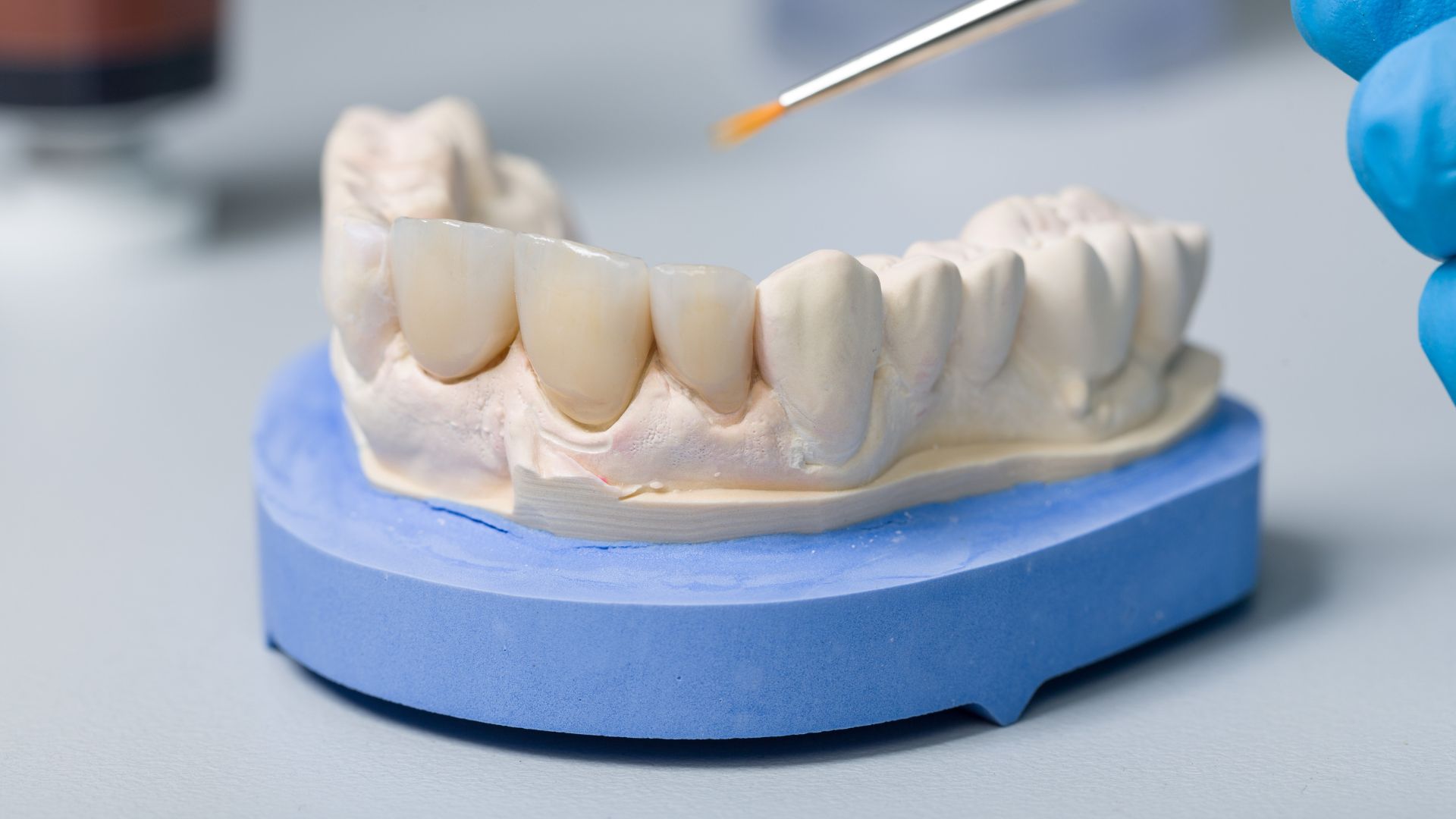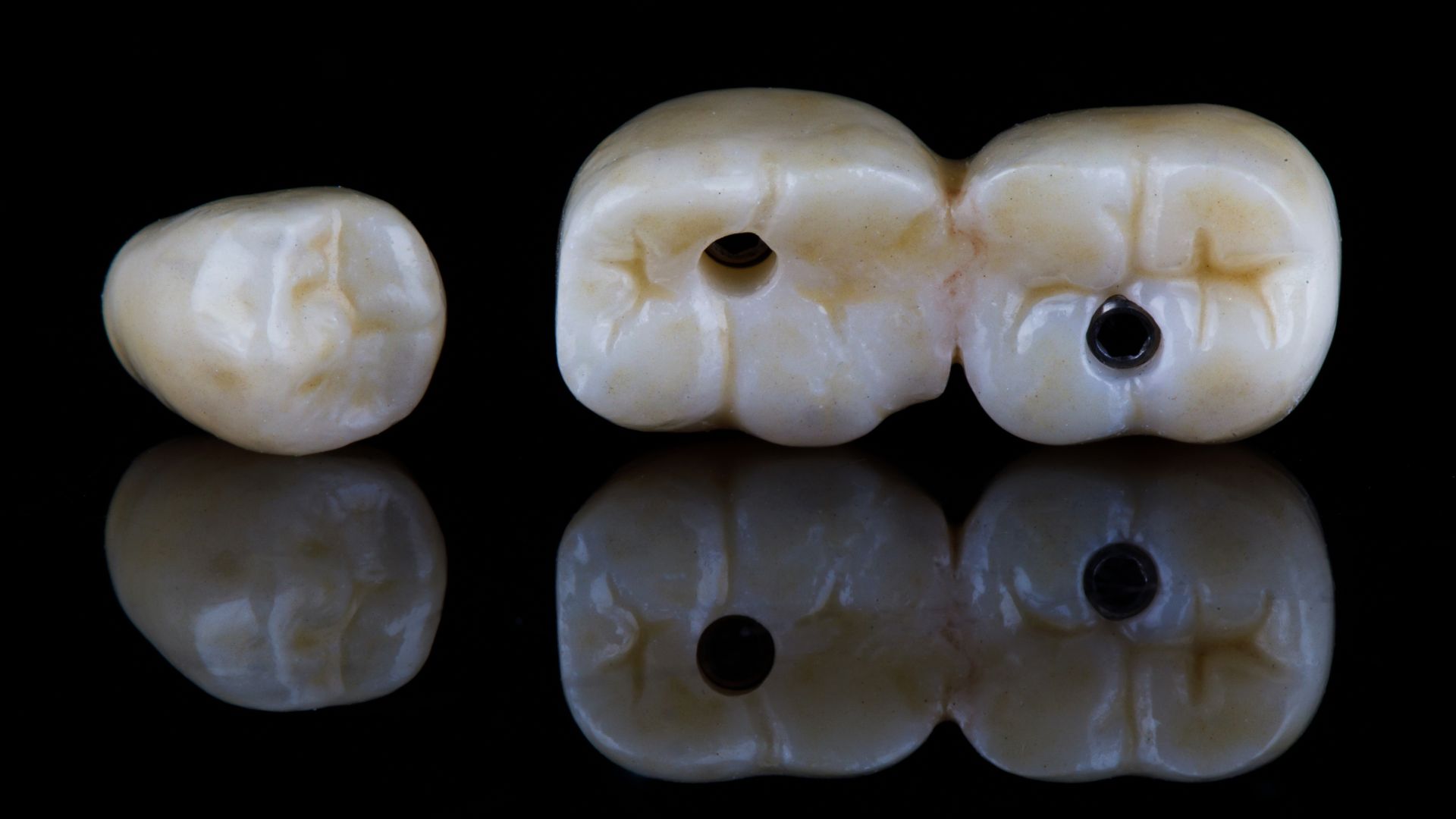

Dental Crowns in Darwin
Unveil Your Radiant Smile with Customized Dental Crowns.
Restore Your Smile's Strength and Beauty with Dental Crowns in Darwin
At our dental practice in Darwin, we specialize in providing high-quality dental crowns to restore both the form and function of your teeth. A dental crown is a durable prosthetic cap that covers the visible portion of a damaged or decayed tooth.
There are various reasons why you may need a dental crown. Whether you have a worn-down, broken, or severely discolored tooth, a dental crown can restore its appearance and functionality. It’s also an excellent solution for teeth with large fillings, providing added support and stability.
Our practice offers different types of dental crowns tailored to your unique needs and preferences. Metal crowns are exceptionally strong and ideal for back teeth, while porcelain fused to metal (PFM) crowns combine strength and aesthetics for both front and back teeth. For a natural-looking result, all-ceramic crowns provide exceptional cosmetic enhancements. If you seek strength and durability combined with an aesthetically pleasing appearance, our zirconia crowns are an excellent choice.
- Restore, Protect, and Enhance: Experience the transformative power of dental crowns that restore, protect, and enhance your teeth.
- Tailored Solutions for Every Need: From addressing damaged teeth to improving aesthetics, our dental crowns in Darwin provide personalized solutions for a range of dental concerns.
- Expert Care, Lasting Results: Trust our experienced dentists to deliver exceptional care, ensuring your dental crown treatment yields long-lasting results for a confident smile.
Book an appointment today and let our experienced dentists provide you with the highest quality dental crown treatment in Darwin. Restore your smile’s strength, enhance its beauty, and enjoy long-lasting dental health.
Frequently Asked Questions
How long do dental crowns typically last?
With proper care and oral hygiene, dental crowns can last 10 to 15 years or even longer.
Is the dental crown placement procedure painful?
No, the dental crown placement procedure is not painful
Can I eat normally with a dental crown?
Yes, you can eat normally with a dental crown. However, avoiding chewing on hard foods or using your teeth to open packages is recommended to prevent any damage to the crown.
Are dental crowns noticeable or do they look natural?
Our dental crowns are designed with a focus on aesthetics and blend seamlessly with your natural teeth. Crafted for a discreet appearance, they provide a natural look that restores your smile without drawing attention.
How should I care for my dental crown?
To maintain your dental crown, practice good oral hygiene by brushing twice a day, flossing daily, and visiting your dentist regularly for check-ups and cleanings. Avoiding habits like teeth grinding and biting on hard objects can also help prolong the life of your crown.


Dental Crown in Darwin
What is a Dental Crown? – Dental Crowns in Darwin:
A Dental Crown is the most common prosthetic device to restore a tooth’s form and function. It is a cap that is fixed over a tooth to cover the visible part of the tooth. They encapsulate the teeth that are beyond repair.
They provide protection and strength to the otherwise vulnerable tooth and add structural support increasing its longevity.
Why do I Need a Dental Crown? – Dental Crowns in Darwin:
- To restore a worn down, broken, or a damaged tooth
- To cover and hold up a tooth with a large filling
- Visually enhance the appearance of a severely discolored tooth where dental veneers or other cosmetic procedures are in question
- To cover and shield a tooth that has undergone root canal treatment
- To cover the abutment over a dental implant
Outcomes of Neglecting a Dental Crown:
- Persisting risk of further damage or infection
- Pain during normal daily activities such as chewing or biting
- Decreased function when compared to a natural tooth
- Affect your bite and smile
Types of Dental Crowns – Dental Crowns in Darwin:
The dentist may recommend the following types of dental crowns depending on your personal preference and your unique oral needs:
Metal Crowns:
Metal crowns are tough, and they rarely chip or break. They can be fabricated using metals such as gold, palladium, nickel, or chromium. They can even withstand chewing and biting forces. However, they do not match the tooth’s color, hence, are generally considered for the back teeth.
PFM Crowns:
Also called, Porcelain fused to Metal crowns, PFM Crowns are a combination of strength, longevity, and aesthetics. They are metal crowns having a porcelain coat that covers the metal. They can be used on the front as well as back teeth.
All-Ceramic Crowns:
All-Ceramic Crowns are cosmetic dental restorations also used in cosmetic dentistry that enhance the teeth’ color, shape, and size. All-Ceramic Crowns are translucent, most natural-looking, and metal free crowns fabricated using ceramics.
Zirconia Crowns:
It is a new material that blends strength and appearance. Zirconia Crowns are tooth-coloured, metal free crowns that are strong and long-lasting. Zirconia Crowns have very low chances of chipping or breaking off and are less likely to wear off.
Procedure – Dental Crowns in Darwin:
Fabrication of a dental crown is done as follows:
Diagnosis and Treatment Planning:
A thorough oral cavity examination and a dental X-ray are taken to evaluate the tooth’s condition. According to your dental status, the dentist may consider root canal therapy before placing a crown.
Anesthesia:
Your dentist may administer local anesthesia to minimize the discomfort.
Tooth Preparation:
Tooth preparation is done for placing the crown by reshaping the outer tooth structure and eliminating any existing decay or filling material.
Dental Impression:
Impression of the teeth is taken using putty or dental paste or via 3D oral scans. These impressions or scans are sent to the dental lab to fabricate the crown.
Temporary Crown:
A temporary crown is fixed in the meantime, filling the space and protecting the tooth.
Final Crown Placement:
After receiving the dental crown from the lab, the dentist checks its fit on your tooth and fixes it using dental cement.
Is Getting a Dental Crown a Painful Procedure?
No. Getting a Dental Crown isn’t a painful procedure. However, your dentist may administer local anesthesia to minimize your discomfort.
Post-Treatment Care – Dental Crowns in Darwin:
- Avoid eating or drinking anything for 30-60 minutes after the crown is cemented.
- Avoid chewing gum and eating chewy or sticky foods for the first 24 hours to facilitate the complete set of dental cement.
- Do not bite on hard foods such as nuts or ice to prevent any damage to the crown.
- Rinse your mouth after meals, and use a soft bristle toothbrush to maintain oral hygiene.
- Incorporate flossing to prevent plaque accumulation and remove any stuck food particles.
